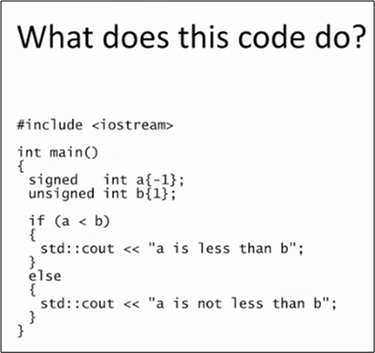Tutorial: Emulating strong/opaque typedefs in C++--Jonathan Müller
Who would like this feature?
Tutorial: Emulating strong/opaque typedefs in C++
by Jonathan Müller
From the article:
Last week, I’ve released my type_safe library. I described it’s features in the corresponding blog post but because the blog post got rather long, I couldn’t cover one feature: strong typedefs.
Strong or opaque typedefs are a very powerful feature if you want to prevent errors with the type system - and as I’ve been advocating for, you want that. Unlike “normal” typedefs, they are a true type definition: they create a new type and allow stuff like overloading on them and/or prevent implicit conversions.


 ACCU’s Overload journal of October 2016 is out. It contains the following C++ related articles.
ACCU’s Overload journal of October 2016 is out. It contains the following C++ related articles.